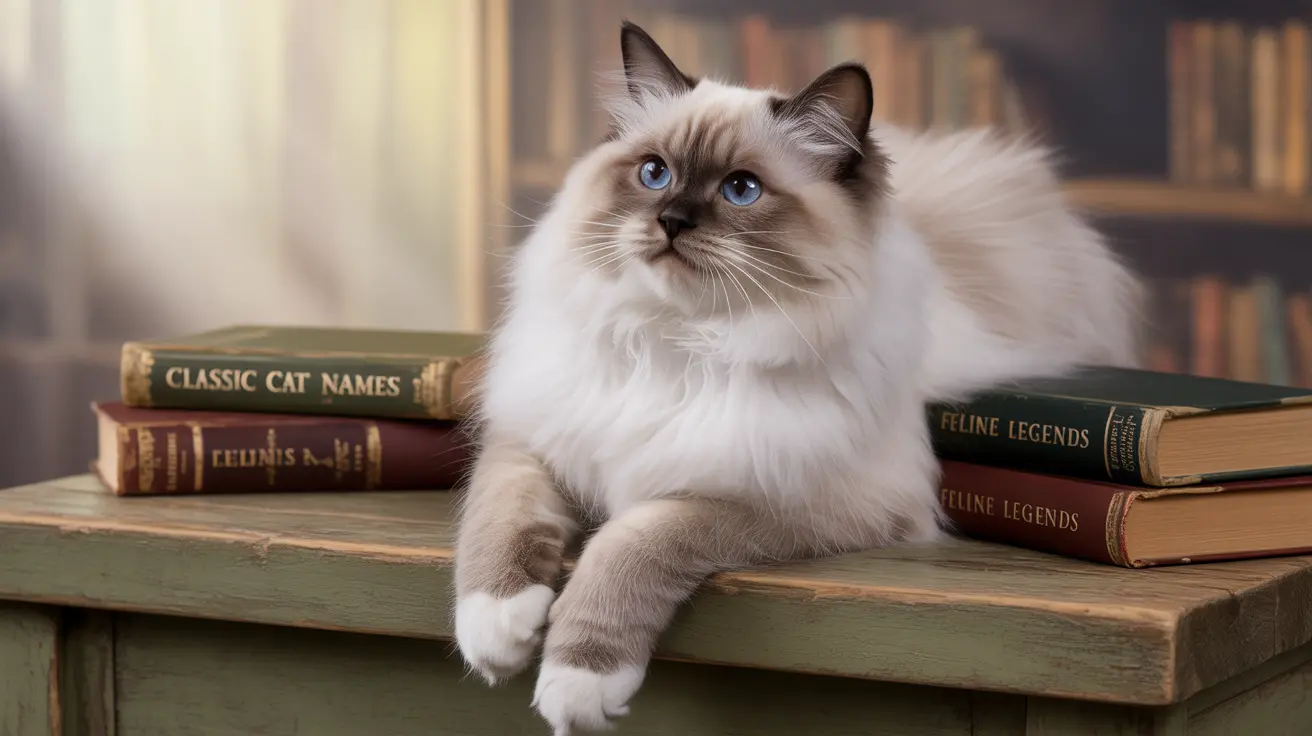Choosing the perfect name for your cat is a significant decision, and classic cat names have stood the test of time for good reason. These enduring monikers carry rich histories, meaningful origins, and a charm that resonates across generations. Whether you're drawn to mythological references, historical figures, or simply traditional pet names, understanding the world of classic cat names can help you make the perfect choice for your furry companion.
In this comprehensive guide, we'll explore the most beloved classic cat names, their fascinating origins, and how to choose the perfect timeless name for your feline friend. From ancient Egyptian influences to medieval European traditions, these names tell stories that connect us to centuries of cat companionship.
The Rich History of Classic Cat Names
Classic cat names often trace their roots to ancient civilizations, particularly Egypt, where cats were revered as divine beings. Names like "Bastet" (after the cat goddess) and "Cleo" (short for Cleopatra) continue to be popular choices that honor this historic connection. Medieval European traditions introduced names like "Tibbles" and "Gib," which evolved from human names like Theobald and Gilbert.
The evolution of cat naming conventions reflects changing cultural attitudes toward our feline companions. The transformation of "Tom" into a universal term for male cats demonstrates how deeply these names have become embedded in our language and culture.
Popular Traditional Cat Names and Their Meanings
Many classic cat names derive their popularity from their meaningful origins:
- Felix (Latin for "fortunate" or "lucky")
- Luna (meaning "moon" in Latin)
- Oliver (from the beloved story "Oliver & Company")
- Tiger (reflecting feline power and grace)
- Midnight (perfect for black cats)
These names have remained popular because they're easy to pronounce, carry positive associations, and often reflect cats' physical characteristics or personalities.
Mythological and Literary Influences
Literature and mythology have gifted us with numerous classic cat names that carry deep cultural significance:
- Artemis (Greek goddess of the hunt)
- Perseus (legendary Greek hero)
- Merlin (the famous wizard)
- Salem (popularized by pop culture)
- Zeus (king of the Greek gods)
Choosing the Perfect Classic Name
When selecting a classic cat name, consider these factors:
- Your cat's personality traits
- Physical characteristics
- The name's historical significance
- How easily the name can be pronounced
- Whether the name will age well with your cat
Remember that cats respond better to names with one or two syllables, so you might want to use shortened versions of longer classic names.
Modern Takes on Classic Names
While maintaining their traditional roots, many classic names have evolved to suit contemporary tastes:
- Theo (shortened from Theobald)
- Leo (from Leonardo)
- Bella (meaning "beautiful")
- Max (from Maximilian)
- Sophie (meaning "wisdom")
Frequently Asked Questions
How do I choose a classic cat name that suits my cat's appearance and personality?
Observe your cat's behavior and physical characteristics for a few days. Consider names that reflect their color (like Shadow for black cats), personality (such as Princess for regal cats), or special markings. Classic names often have variations that can be matched to your cat's unique traits.
What are some timeless mythological cat names inspired by ancient cultures?
Popular mythological cat names include Artemis, Apollo, Isis, Osiris, and Zeus from Greek and Egyptian mythology. These names carry powerful meanings and historical significance while maintaining their appeal through generations.
Why are classic cat names often preferred over modern or trendy names?
Classic cat names tend to age better than trendy ones, are usually easier to pronounce, and carry meaningful historical or cultural significance. They also often have universal appeal and recognition, making them practical choices for the lifetime of your pet.
How do classic cat names reflect historical and cultural influences from different parts of the world?
Classic cat names often mirror the cultures they come from - Egyptian names like Cleo reflect regal heritage, Greek names like Apollo suggest divine qualities, and European names like Felix carry lucky associations. These names preserve cultural stories and traditions through generations.
What are some popular classic cat names that are also commonly used for humans?
Many classic cat names overlap with human names, including Oliver, Max, Luna, Sophie, and Leo. These names work well for pets because they're familiar, easy to pronounce, and help emphasize the family member status many cats hold in modern households.
Conclusion
Choosing a classic cat name connects your pet to a rich history of feline companionship while providing a timeless, meaningful identity. Whether you prefer ancient mythological names, traditional pet names, or classic human names, there's a perfect choice waiting for your furry friend. Remember that the best name is one that both you and your cat will be happy with for years to come.






